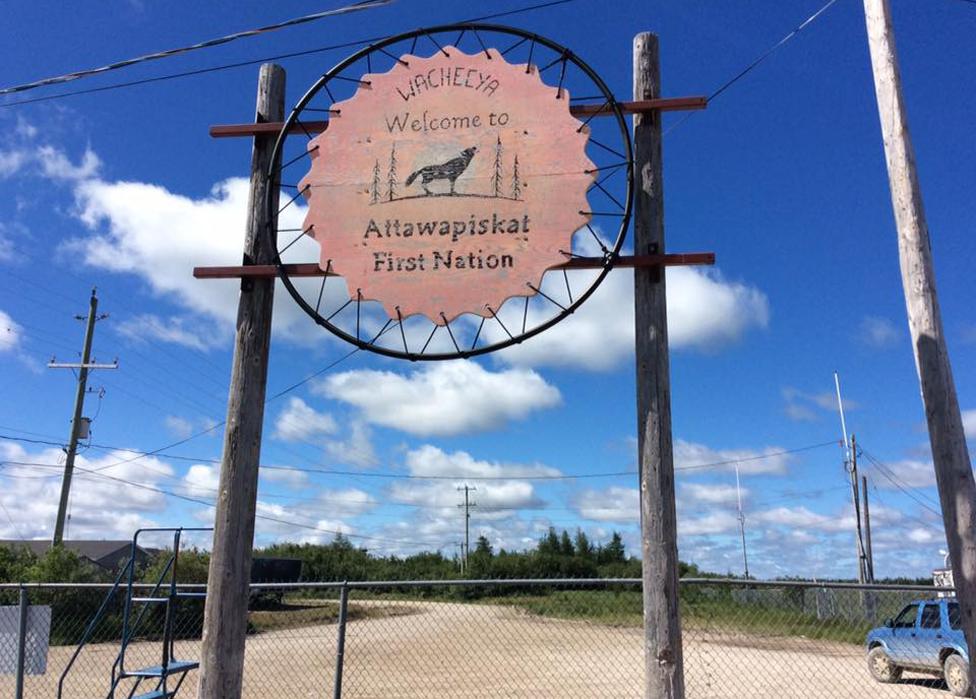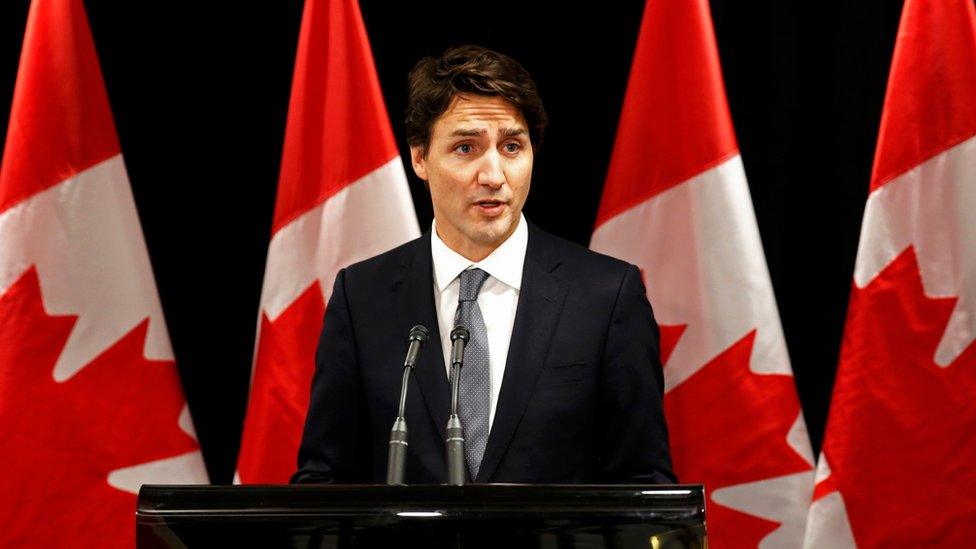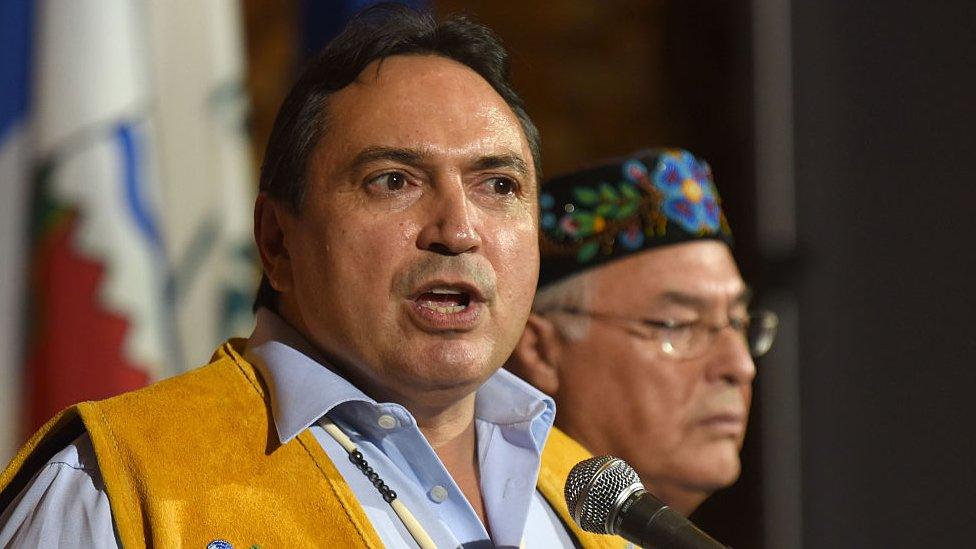Ontario First Nation declares state of emergency over suicide
- Published

Like Wapekeka First Nation, Attawapiskat has also struggled with suicide
A Canadian aboriginal community has declared a state of emergency following the suicide of three teenage girls.
Chief Brennan Sainnawap of the remote Wapekeka First Nation in northern Ontario made the declaration this week.
On 13 June, Jenera Roundsky, 12, became the latest child to die as part of a suicide pact.
In January, two other 12-year-old girls killed themselves. The community says almost 40 youths are considered to be at risk in a town of about 400 people.
It is the latest suicide crisis to hit a Canadian aboriginal community. Last year, Attawapiskat First Nation in Ontario declared a state of emergency after 11 people attempted to take their own lives in a single day.
Over the summer, Wapekeka notified Health Canada that they had become aware some girls had entered into a suicide pact and asked for about C$380,000 (£225,000; $286,000) to create a youth suicide prevention programme.
Leaders of the village also met Prime Minister Justin Trudeau to talk about the community's suicide crisis.
Health Canada said it would send the funds but Wakepeka says it has so far only received $95,000 - a quarter of what was promised.
In January, an anonymous donor pledged to send $380,000 to help prevent youth suicide in the community when the federal funds were slow in coming.
Wapekeka spokesman Joshua Frogg told the BBC on Friday that the donor only eventually sent $30,000, which went to hiring one mental health worker for a couple of months.
Mr Frogg's niece, Chantell Fox, was one of the three girls who committed suicide. He spoke in January at a news conference in Ottawa, pleading for a national strategy on suicide.
The Toronto Star reported that Jenera Roundsky, external was found dead on 13 June at the local hockey rink. She had reportedly texted a friend to say goodbye.
Chantell and Jolynn Winter both died less than six months earlier.
On Friday, Health Canada said in a statement that it has been funding additional crisis supports since last winter. That includes four mental health counsellors whose positions are funded until March 2019.
The federal agency also says it has provided Wapekeka with close to $1m for the delivery of their community health programmes since last April.
Ontario Indigenous Relations Minister David Zimmer said in a statement on Friday that the province is working with regional and federal partners to help coordinate the response for additional support.
The province also committed $50,000 last week in response for sport and recreation activities for youth there.
"The conditions that lead to despair and hopelessness are complex and multi-layered. We all have a responsibility to address these conditions seriously," Mr Zimmer said.
Last year, Ontario's Attawapiskat community saw 28 suicide attempts in March and more than 100 since September 2015.
The regional Weeneebayko Health Authority flew in a crisis team, mental health nurses and social workers to help with the crisis.
Nishnawbe Aski Nation, which represents 49 First Nation communities within northern Ontario including Wapekeka and Attawapiskat, said earlier this year that 17 people died due to suicide across the region between January 2016 and January 2017.
It criticised the "current piecemeal approach to this perpetual crisis" by the federal government.
Where to get help
From Canada or US: If you're in an emergency, please call 911. If you or someone you know is suffering with mental-health issues, call Kids Help Phone at 1-800-668-6868. If you're in the US, you can text HOME to 741741
For Health Canada's First Nations and Inuit Hope for Wellness Helpline, call 1-855-242-3310
From UK: Call Samaritans on 116123 or Childline on 0800 1111
- Published11 April 2016

- Published26 January 2017
